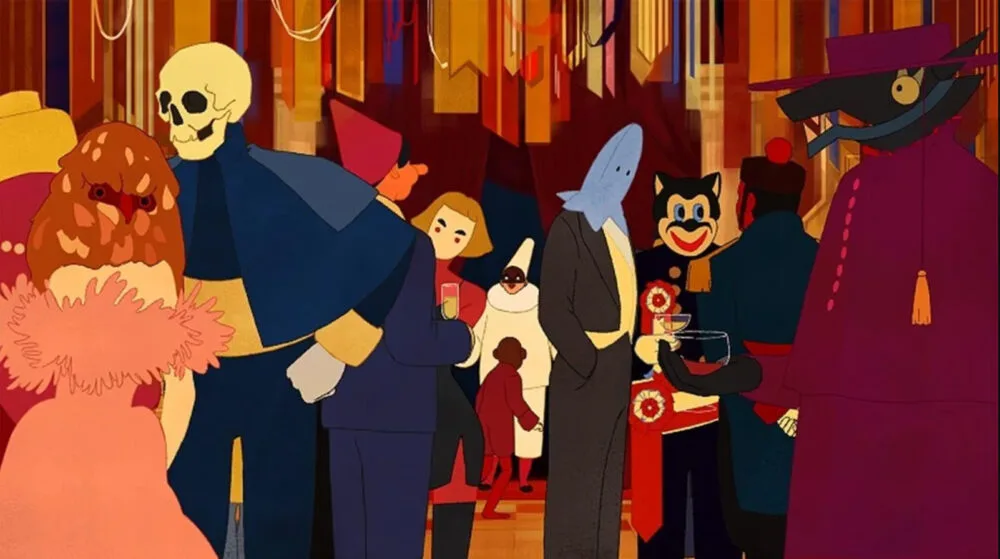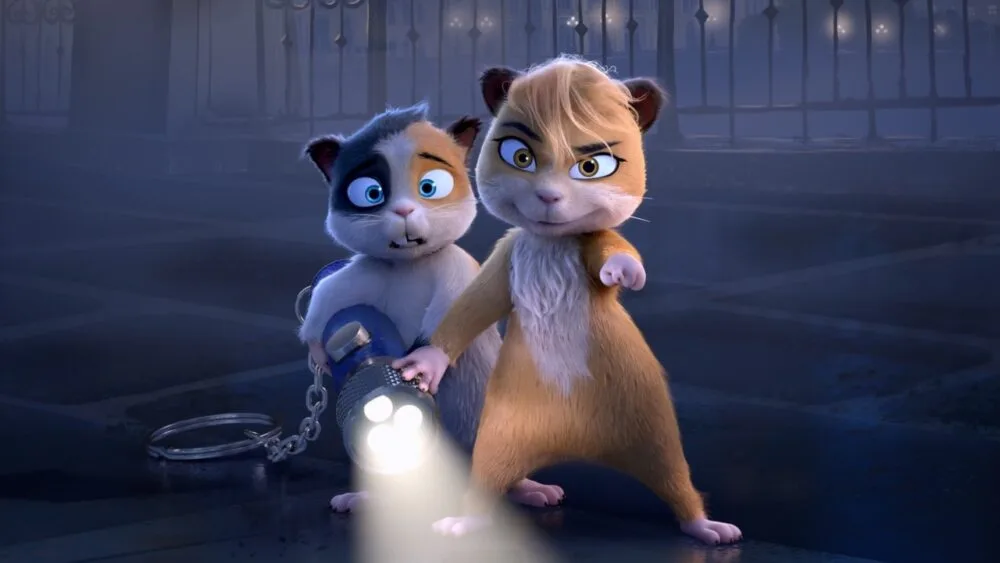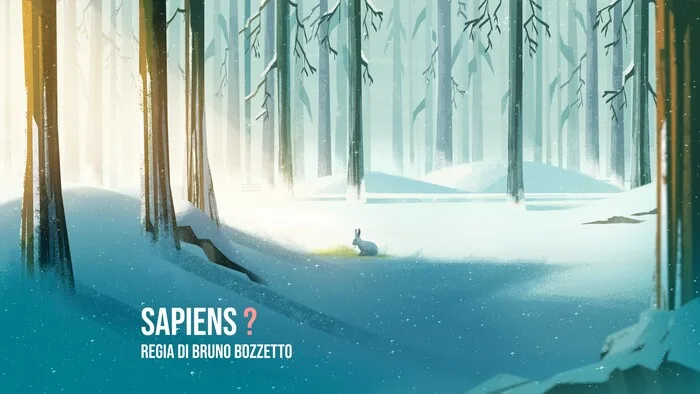The 27th edition of Cartoons on the Bay returned to Pescara, on Italy’s Adriatic coast, with four days of free activities for the public, and an intense three-day conference for professionals. Sponsored by Rai and Rai Com, it brought together producers, students and broadcasters under one roof to network and celebrate animation in all its forms.
The festival is best known for its Pulcinella Awards, with 17 categories being voted for by a jury on site, and several achievement awards that were preannounced. In addition, Francesco Tullio-Altan, creator of the famous red-spotted dog Pimpa, was presented with the second Sergio Bonelli Award, and the seventh Giuseppe Laganà Award went to the student film La Notte from CSC Animazione in Piemonte.

As with many animation events nowadays, there was a Pitch Me! Competition, with several Italian participants who competed for prizes from Wacom and Toon Boom, but most importantly an opportunity to present their project at Cartoon Springboard, to be held in Madrid in October. The winners were Ivana Murianni and Alice Gambara with their project NoPets!. Comments were made that 10 years ago, every pitch was about superheroes, but now the new generation of creators are looking to tell more socially-aware and personal stories.
The audience was thrilled to see talks with local heroes Alessandro Perugini, the best-selling author responsible for Pera Toons, and Bruno Bozzetto, a giant in the animation industry, who was giving a sneak preview of his new film Sapiens?, a 30-minute short using three different animation styles that is designed to spread awareness of environmental and animal rights, a subject Bozzetto feels passionately about.
From an industry standpoint, there was much to take in — Germany was the guest country, and representatives of broadcasters ARD, ZDF and KiKA explained how they work together within the country and what they are looking for in new productions.
ASIFA Italy also presented the results of their census of the Italian animation industry — out of an estimated 10,000 animation workers within Italy, around 10% participated in the census, which showed a marked dominance in 2D animation workers. This was reinforced in other sessions where it was mentioned that entries for the Giuseppe Laganà Award had mostly been 2D, and a particular 3D course received no applicants at all. One reason posited was that it is easier to get a project started technically in 2D compared to 3D. Maybe it’s not that surprising given the success and influence of Italian 2D directors such as Bozzetto and Enzo D’Alò, or that one of the major 2D animation software packages was created in Rome (Digital Video’s Toonz, now released as the open-source OpenToonz). But for whatever reason, the industry is of the opinion that more 3D workers have to be found in Italy.
Perhaps presciently, then, a delegation from Unreal Engine were present, talking about real-time animation, giving the delegates another exclusive preview in the form of Alex Player, a TV series from Graphilm, Cyber Group Studios and Scrawl Animation. Half the series is set in the real world and seen as 2D animation made in Adobe Animate, and the other half is set in a 3D game world powered by Unreal. It’s an interesting mix of styles and technology that gels with the storyline perfectly.
Less technical but just as compelling, a storytelling class was given by Dario Tonani, Andrea Fredani and Paolo Di Orazio, writers in the sci-fi, historical and horror genres, respectively. It was refreshing to hear takes on storytelling at an animation conference that were from novelists — writing an impactful story and building an original universe are tasks all IP creators have to master, and it’s important not to get too tied up in the animation side of things.

A new Transmedia award has been created for the Pulcinellas, and was given to Studio MDHR for their worldwide hit Cuphead. Maja and Chad Moldenhauer beamed in via Zoom to accept their award and talk about the process of developing the unique visual look for the game. They found that they could not emulate the classic cartoon style they were after using digital tools alone, and so all the animation was drawn and inked on paper, and only the coloring was done on computer. The biggest problem, aside from the extra cost and time of hand-drawing each frame, was finding animators who were used to working on paper.
Another old-school technique was celebrated in the Pulcinella Career award that was given to Peter Lord, co-founder of Aardman, who was at the event in person to talk about his life in animation. He showed one of his first creations, a 2D short filmed under a rostrum camera, and a number of clips showing Aardman’s huge body of work over the years, incorporating stop-motion, CGI and just about every other technique you can think of. He even brought Morph with him, to the delight of fans.
Also bringing a stop-motion creation was Ian Mackinnon, who was accepting the Pulcinella for Studio of the Year on behalf of Mackinnon & Saunders. Accompanying him was one of the models of Pinocchio from Guillermo del Toro’s Oscar-winning film, and Ian gave a retrospective of the many renowned stop-motion productions his studio has been instrumental in making.
The second Pulcinella Career award went to Ari Folman, who sat down for a Q&A about his work in animation. He talked at length about the difference between his first feature, Waltz With Bashir, which was made on a budget of €1.5 million with a crew of 10 people, and his most recent, Where Is Anne Frank?, which was a co-production between five countries, ending up being worked on across 14 countries due to the pandemic, requiring 350 people for a total cost of €20 million. He also commented on the way his second animated feature, The Congress, about virtual actors, is more relevant today than he would have expected it to be at this stage, and wondered if, in 10 years’ time, audiences would not care about real live actors and their scandals, and be accepting of virtual ones instead.
The main takeaway from Cartoons on the Bay is that state investment over the last 10-15 years has enabled the Italian industry to improve the quality and amount of its output to cement its place as a major player in animation — indeed, there has been a 500% increase in artists in the country, the biggest growth in Europe. As a broadcaster, Rai is doing the best it can, currently having a hand in 50 Italian productions, of which 31 are new IP, and enabling 35 independent Italian companies to thrive. The animation business in Italy is definitely in the ascendant.
For more information about Cartoons on the Bay, visit cartoonsbay.rai.it.
Andy Blazdell is the CEO of popular animation software company CelAction (celaction.com).

2023 Pulcinella Award Winners
Best Animated Feature – Where Is Anne Frank? by Ari Folman (Belgium) | produced by Le Pacte
- Also awarded the Pulcinella Ciak d’Oro for civil impact.
Best Director – Metamorphosis by Michele Fasano (Italy) | Sattva Films Production and School srl
Best Screenplay – Oops, I Murdered The Person The Person I Like Likes by Ross Ozarka (New Zealand) | Ross Ozarka Films
Best Animation – The Amazing Maurice by Toby Genkel (Germany) | Ulysses Filmproduktion GmbH, Cantilever Media Limited
Best Soundtrack – Saleem by Cynthia Madanat Sharaiha (Jordan) | Digi Tales

Best Preschool TV Show – Leo’s World by Dario Piana (Italy) | Rai Kids and Brand-Cross srl
Best Upper Preschool TV Show – Team Nuggets by Michael Hegner & Tor Fruergaard (Denmark) | Sparre Production
Best Kids TV Show – Mystery Lane by Cédric Lachenaud (France) | HARI Studios
Best Youth TV Show – Clay Economy by Bibiana Petrera and Monica Fibbi (Italy) | Uffa srl

Best Interactive Animation – Hogwarts Legacy (U.S.A.) | Avalanche Software
Best Live Action or Hybrid TV Show – Mimi’s World by Aidan Largey (U.K.) | Adastra Development
Best TV Pilot – Freaked Out Train Brain by Théo Grosjean, Timothy Richard (France) | Autour de Minuit
Best Short Film – Caramelle by Matteo Panebarco (Italy) | Panebarco srl and Mediterraneo Cinematografica

Targa UNICEF – Special Award for the best project with a socially impactful character – Nel mare ci sono I coccodrilli (There Are Crocodiles in the Sea) by Rosalba Vitellaro (Italy) | Rai Kids and Larcadarte
Meta Award – Hello Kitty, Sanrio Co. Ltd.
Gender Award – Monica Manganelli
















